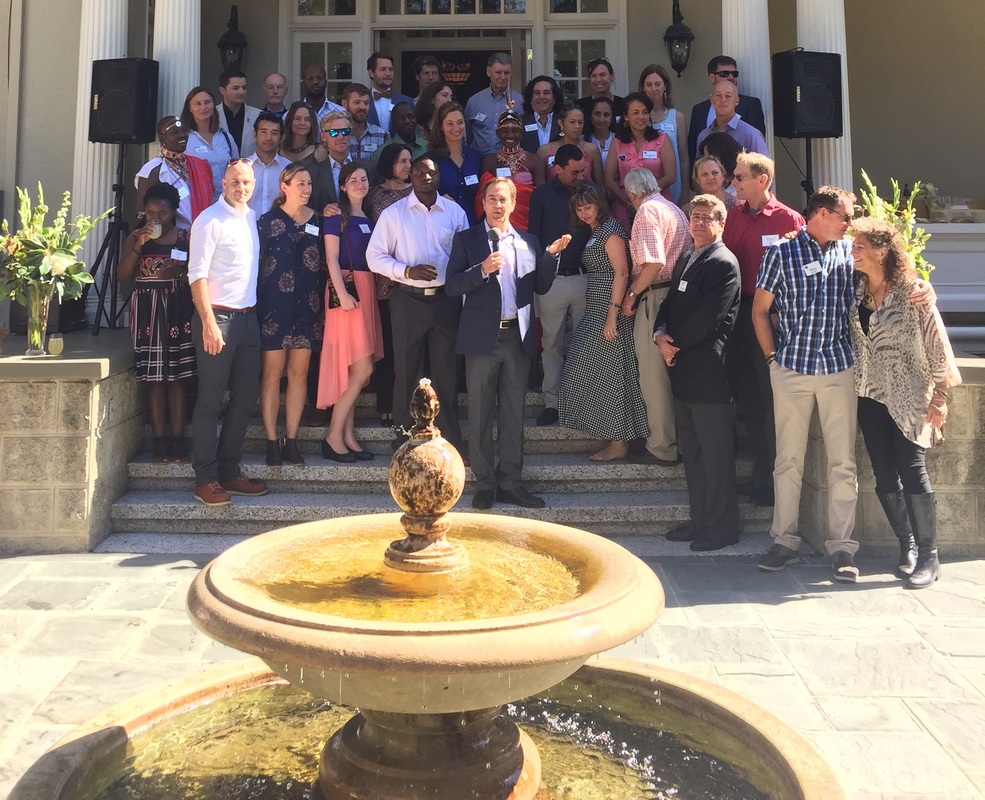|
Cheetah Conservation Botswana’s (CCB) Executive Director, Rebecca Klein and Field Camp Coordinator, Max Seele attended the Wildlife Conservation Network (WCN) expo in October for a week of networking with some of the best wildlife experts and enthusiasts in the world. 2016 marked the 15th anniversary of the expo! San Francisco was the place to be on the 8th October, where supporters and conservationists from all over the world met to hear firsthand information on the efforts by different organisations, as they shared their work, experiences and challenges in their fields of wildlife work. Botswana still holds one of the largest concentrations of cheetahs and CCB presented our grassroots efforts being made to save the species in the country. With fewer than 7000 cheetahs left in the world, this calls for the employment of community coexistence measures. CCB efforts include using a triple approach of scientific research, community outreach and conservation education. This approach emphasises the need to conserve a healthy ecosystem as well as securing the livelihoods of communities that are affected by the conflict between cheetahs, other carnivores and their livestock. Being part of WCN Expo 2016 was a great honour and thank you to WCN and their partners; it is through you that we are able to step closer to our ultimate goal of coexistence.
0 Comments
The adoption of non lethal and cost effective farming management tools can be very effective for a farmer if used correctly. The knowledge of predators that one live side by side with, can have a positive impact in ones’ farming efforts while an integration of these tools do come in handy. CCB community outreach team has been working tirelessly with the fragile communities of the Ghanzi area in supporting and sharing with them on how they can adapt their farm management for the safety of their livestock from predators. CCB outreach team, in partnership with Ghanzi Department of Wildlife and National Parks, hosted a farmer's workshop on the 18th October 2016 at CCB Tiisano Camp in Ghanzi, to impart knowledge and information with farmers from Qabo and Zutshwa. 30 farmers were introduced to various subjects regarding the care of livestock, knowledge of local predators, range land management, factors influencing stock theft and prevention, different farm management tools and correct identification of predators. Farmers participated very well during the workshop proceedings, asked questions, shared ideas and went back rich in knowledge, happy and motivated. Our thank you’s goes to the farmers, different key partners in conservation that made presentations as well as the CCB team for making sure the message reaches our target audience in full force. The inspiration we get from all stakeholders involved in forums like this gives us hope and keeps us going.
The CCB Livestock Guarding Dog (LSGD) program promotes the use of livestock guarding dogs as a management tool to protect small stock from predators. Dogs are placed with farmers and later monitored, and the scoring looks for effectiveness using methodologies developed for guarding dog behaviour. Monitoring includes investigating livestock losses to predators on farms with and without guarding dogs. As part of our support to LSGD beneficiaries, CCB provides free veterinary and medical care of these dogs by vaccinating and sterilising them before or after placement. CCB placed 16 guarding puppies with interested and active farmers who were experiencing conflict with predators in their areas to act as a first line of defence for their small stock. The vet clinic was conducted on the 7th and 8th of October 2016 in Ghanzi. The dogs have since grown and a total of 16 working livestock guarding dogs were brought in to receive the sterilisation. The sterilisation clinic was conducted by Vetswana team from Lobatse and the clinic went very well with nine male and seven female dogs successfully sterilised. We would like to thank Vetswana and those involved in making this day a huge success. After all, we are about working with those that live alongside predators and support them in using cost effective management tools that can minimise predation.
|
SearchArchives
May 2024
Categories |





 RSS Feed
RSS Feed
